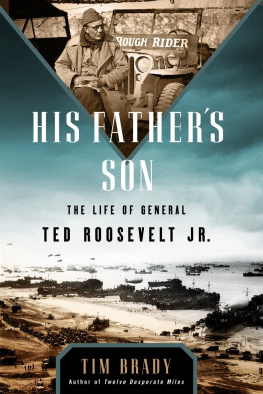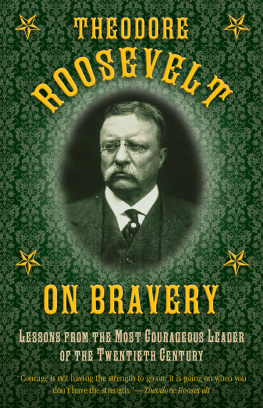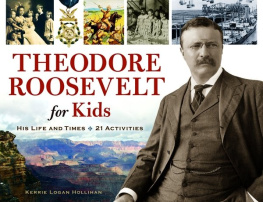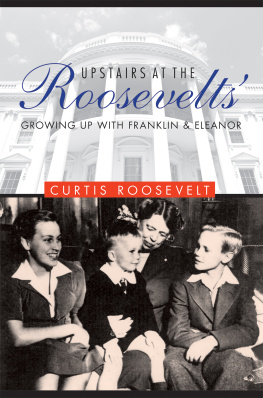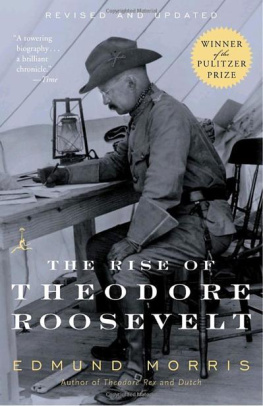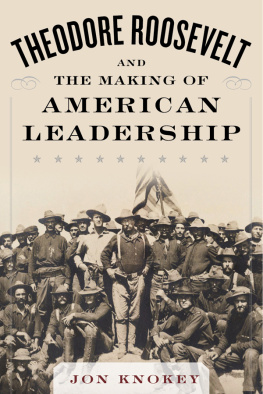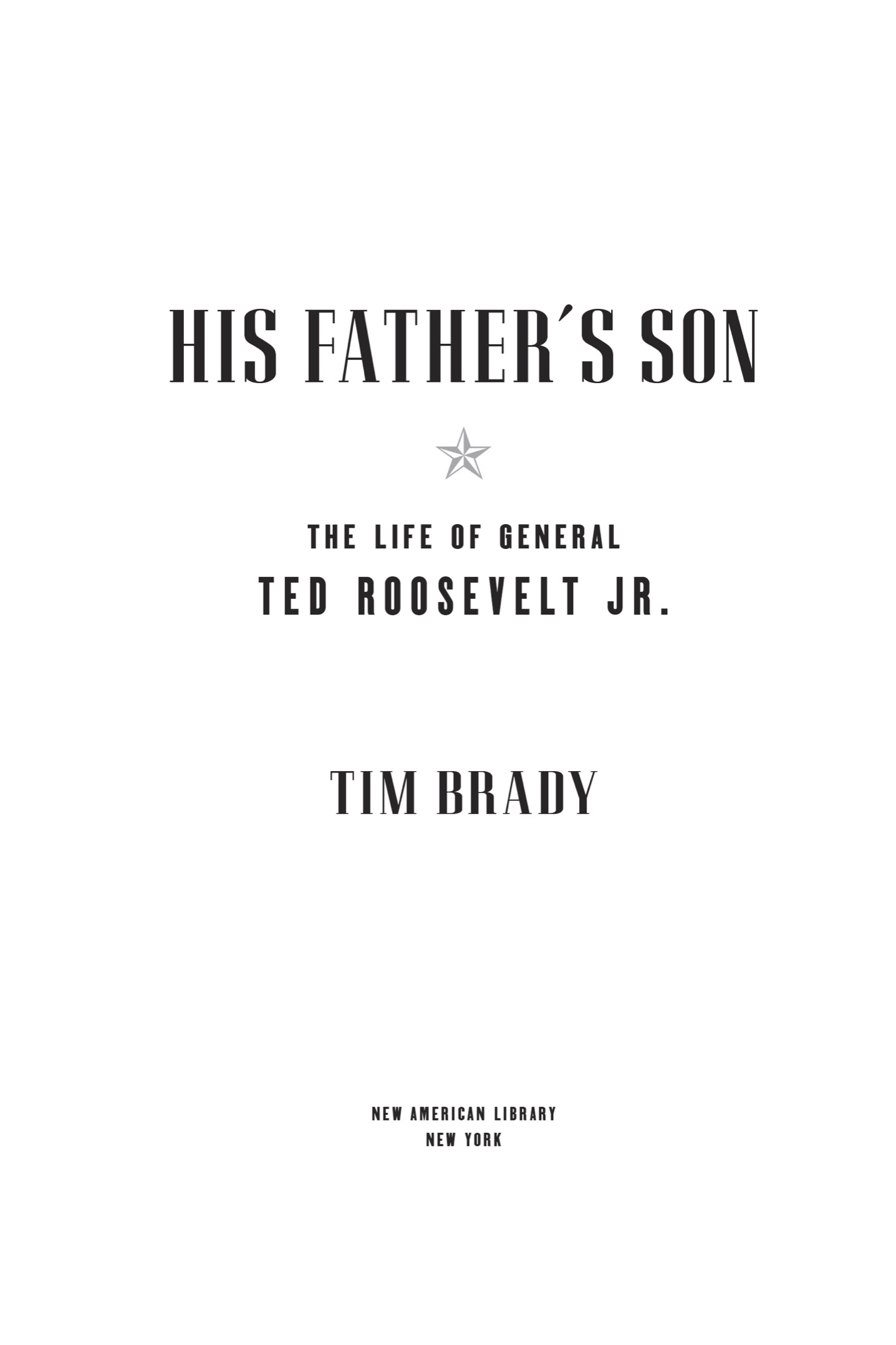NEW AMERICAN LIBRARY
Published by Berkley
An imprint of Penguin Random House LLC
375 Hudson Street, New York, New York 10014

Copyright 2017 by Tim Brady
Penguin Random House supports copyright. Copyright fuels creativity, encourages diverse voices, promotes free speech, and creates a vibrant culture. Thank you for buying an authorized edition of this book and for complying with copyright laws by not reproducing, scanning, or distributing any part of it in any form without permission. You are supporting writers and allowing Penguin Random House to continue to publish books for every reader.
New American Library and the NAL colophon are registered trademarks of Penguin Random House LLC.
Library of Congress Cataloging-in-Publication Data
Names: Brady, Tim, 1955 author.
Title: His fathers son: the life of General Ted Roosevelt Jr./Tim Brady.
Description: First edition. | New York, New York: New American Library, 2017. | Includes bibliographical references and index.
Identifiers: LCCN 2016030885 (print) | LCCN 2016031208 (ebook) | ISBN 9781101988152 | ISBN 9781101988176 (ebook)
Subjects: LCSH: Roosevelt, Theodore, 18871944. | GeneralsUnited StatesBiography. | PoliticiansUnited StatesBiography. | Children of presidentsUnited StatesBiography. | Roosevelt, Theodore, 18581919Family. | World War, 19391945Biography. | World War, 19141918Biography. | Medal of HonorBiography
Classification: LCC E757.3.B73 2017 (print) | LCC E757.3 (ebook) | DDC 973.91/1092 [B]dc23
LC record available at https://lccn.loc.gov/2016030885
First Edition: January 2017
Jacket photo of the Normandy landing by Time Life Pictures/The Life Picture Collection/Getty Images; photo of Theodore Roosevelt Jr. by US Army Signal Corps/ The National World War II Museum
Jacket design by Pete Garceau
While the author has made every effort to provide accurate telephone numbers, Internet addresses and other contact information at the time of publication, neither the publisher nor the author assumes any responsibility for errors, or for changes that occur after publication. Further, publisher does not have any control over and does not assume any responsibility for author or third-party Web sites or their content.
Version_1
TO THE BRADY CLAN
Contents
PROLOGUE
THE CROWDED HOUR

On the evening before the deciding battle of the Spanish American Wara conflict that would forever change his life and political fortunesTheodore Roosevelt slept peacefully beneath a raincoat on the edge of the Cuban jungle, a few miles southeast of Santiago. He was content with his circumstances and excited by the prospects the next day would bring. His main concern, beyond the dangers of battle, was that he not miss out on the fighting. He hoped that he would be courageous in the melee to come, and that his courage would be noticed not only by the men he led, but also by those who would later tell the story. To be in the thick of a wild fight, holding tight to the reins of his horse, Little Texas, as the two reared against a smoke-filled sky, this was the dream of Lieutenant Colonel Roosevelt as he slept that night.
That he might find himself here, slumbering beneath a canopy of banyan trees on a Caribbean isle, was no accident of fate. Born the son of a wealthy New Yorker also named Theodore Roosevelt, the man beneath the slicker had been a sickly child who through sheer will and exercise had turned his puny, asthma-racked body into the rock-solid frame of an enthusiastic young boxer by the time he went off to college at Harvard. A dandified and effete undergrad with an interest in the natural sciences and New York politics, Theodore was elected to the statehouse in Albany, where as a precocious legislator he won the grudging respect of hard-bitten ward pols and upstate rubes alike.
On one devastating Valentines Day in 1884, he suffered the loss of his beautiful young wife, Alice, and his mother within hours of one another. A daughter had been born to him only two days prior, but stricken with grief and incapable of caring for her, he headed to the Dakotas to serve an exile in the Badlands, where he came to love the rough personalities and wide-open spaces of the nations West.
Still a deeply political animal full of outsized ambition, he returned to the East, married an old flame, started a new family, built a house at Oyster Bay on Long Island, commenced a new career, wrote history books, served as a civil service administrator in Washington, as a police commissioner in New York, and again in Washington as assistant secretary of the navy. In every position he pushed his own ideas, his own notions of reform and righteousness, and assumed that his manner of getting things done was superior to those of those who served above him. He stepped on toes, he irritated, he exacerbated, he bullied and provoked, but he also won deep admiration from those who saw him as a man who lived and worked above the muck of modern politics.
He was ethical and smart and fearless. Good-humored and interesting. He didnt care if he ruffled feathers in his own Republican Party on matters of civil service patronage. He didnt care that in his attempts at cleaning up the streets of New York City as a crusading police commissioner, going out every night into the violent and corrupt haunts of Manhattans precincts looking for dirty cops and illicit behavior, and banning Sunday drinking in the city, he made himself a mortal enemy not just of Tammany Hall, but also of most every working stiff in the city who had just that one day to bend an elbow at the local quaffing house. He didnt care that as assistant secretary of the navy he had done everything in his power to help foment this war against Spain, even as he planned all along to resign his post, raise a regiment of boots-and-spats volunteers, and participate in the brawl himself, leaving the secretary of the navy in the lurch to clean up after him.
Even his large and beloved family, to whom he was an adoring father and faithful husband, was secondary to his ambition. His wife, Edith, gave birth to their fifth child, Theodores sixth, in November 1897. Soon after, she became seriously ill with abdominal tumors, which laid her up for months as the Cuban crisis escalated in the winter and spring of 1898, yet her husband continued to make plans to go to war.
Theodores oldest son and namesake, ten-year-old Ted Jr., suffered for months with severe and debilitating headaches during the lead-up to war. After he had visited five different experts looking for a diagnosis and relief, the headaches disappeared only when the family doctor urged his parents to ship Ted off to an aunts home in New York in the spring of 1898, to take a vacation from his beloved yet overbearing and risk-taking father.
From his earliest years, Ted Roosevelt Jr. was judged to be more combative, more determined, more fearless than his brothers and sisters. He was also sensitive to the burdens of being his fathers oldest son. Ted was very much like Theodore, and began to emulate him at an early age, assuming the future presidents facial expressions and habits of speech at a precocious age. The famed Roosevelt exclamation D-e-e-e-lighted! was used by son as well as father. Cunning was a favorite adjective of both, used as a compliment for clever thinking and smart characters. As a small boy, Ted even liked to clomp around in his fathers big shoes.

